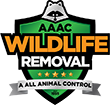Is Pest Control a Recession Proof Business?
Yes, pest control is considered recession-resistant because infestations threaten health, safety, and property regardless of economic conditions. Since these problems demand immediate solutions, both homeowners and businesses continue to rely on pest control services even during downturns.
A recession-proof business weathers economic downturns by providing essential services that customers can’t easily cut. Pest control falls squarely into this category: infestations pose health risks and property damage regardless of broader financial woes. AAAC Wildlife Removal has consistently served homeowners and businesses through past recessions, demonstrating how reliable wildlife and pest services remain in high demand even when budgets tighten.
What Makes a Business Recession Proof?
Recession-proof businesses provide services or products that remain essential no matter the state of the economy. These industries tend to fulfill basic needs, think healthcare, utilities, repair services, and food. Even when households or companies cut back on spending, they prioritize health, safety, and property protection.
Pest control fits this profile well. Rodents, insects, and nuisance wildlife don’t pause their activity during a financial downturn. In fact, neglected maintenance or shifting living conditions can actually increase infestations. That’s why services like those provided by AAAC Wildlife Removal remain relevant: they solve problems that simply can’t wait.
Why Pest Control Holds Up in a Recession
Pest Control is a Health and Safety Service

Infestations aren’t just annoying, they’re hazardous. Rodents and raccoons can carry diseases, contaminate food, and trigger allergic reactions. Cockroaches and mosquitoes pose their own health threats, especially in warmer climates. Pest control isn’t a luxury service; it’s a health safeguard. Companies like AAAC Wildlife Removal help prevent outbreaks and keep both homes and commercial properties safe year-round.
Property Protection and Cost Prevention
From chewing through electrical wires to tearing up attic insulation, pests can cause thousands in damage fast. That’s why even during recessions, homeowners continue scheduling inspections and treatments. Paying for prevention is far less painful than dealing with the aftermath. AAAC Wildlife Removal often helps clients address damage from animals like squirrels and raccoons, then sets up preventative solutions to avoid repeat invasions.
Commercial and Regulatory Pressures
For businesses, pest control isn’t optional—it’s mandated. Restaurants, warehouses, hospitals, and rental properties are subject to strict local and federal health codes. Skipping scheduled pest control could mean citations or shutdowns. AAAC works with business owners to stay compliant, offering dependable services that help them stay open and safe, even when budgets tighten.
Recurring Contracts Provide Business Stability
Many pest control companies operate on scheduled service contracts—monthly, bi-monthly, or quarterly. These agreements provide reliable income and ensure that customers get year-round protection. At AAAC Wildlife Removal, recurring service plans keep wildlife from returning while giving customers peace of mind. That built-in consistency is a key reason the industry stays stable even in tough times.
Industry Trends and Statistics During Past Recessions
The pest control industry has shown remarkable resilience during economic downturns, including the 2008 financial crisis. According to data from the U.S. Bureau of Labor Statistics, employment in pest control services remained steady, even grew slightly, while other industries faced layoffs and closures. This stability is largely driven by the ongoing need for pest management in both residential and commercial sectors.
Research from the National Pest Management Association (NPMA) also highlights that demand for pest services actually increases in certain periods due to climate shifts and urban sprawl. For example, warmer winters and wetter summers extend pest breeding seasons, leading to more service calls. Brands like AAAC Wildlife Removal have been able to maintain consistent growth by addressing this year-round demand, especially in wildlife-heavy regions across the U.S.
Challenges During Economic Downturns
Residential Customers Cut Back on Non-Urgent Services

During financial stress, homeowners tend to tighten their budgets. While infestations demand immediate action, preventive or seasonal treatments may get postponed.
This can affect the frequency of routine checkups, though most households still respond quickly when a real pest threat arises.
Commercial Clients May Delay or Restructure Contracts
Businesses like restaurants, apartment complexes, and offices often look for ways to reduce operating costs during a downturn. Some may request longer intervals between treatments or scale down to basic services. However, because pest control is often a compliance issue, complete service termination is rare.
Competitive Pricing Becomes More Intense
Tighter budgets mean more price shopping. Pest control companies may feel pressure to lower rates, offer discounts, or justify service costs more clearly. Brands like AAAC Wildlife Removal stand out by emphasizing expertise, long-term savings, and ethical, effective wildlife handling, key factors beyond just price.
Supply Chain and Staffing Pressures
Economic slowdowns can disrupt product availability or increase fuel and equipment costs. Some companies may also struggle to retain technicians. Organizations like AAAC mitigate these risks by maintaining lean operations, investing in local talent, and using efficient route planning to reduce costs without sacrificing service quality.
Opportunities in the Pest Control Industry
Rising Demand in Suburban and Wildlife-Prone Areas
As more families move to the suburbs and build homes near wooded areas, interactions with wildlife increase. This trend boosts demand for services like squirrel, raccoon, and bat removal, core specialties for AAAC Wildlife Removal. Suburban expansion means more attics to protect and more homeowners needing long-term prevention plans.
Franchising Offers a Stable Entry Point
Pest control franchising has become a reliable path for entrepreneurs seeking a recession-resistant business model. Brands like AAAC Wildlife Removal offer operational training, brand trust, and support systems that reduce risk for new owners. With a growing market and predictable service needs, franchises thrive even when other industries struggle.
Technician Jobs Stay in Demand
The industry consistently needs skilled technicians, even during downturns. Pest problems don’t pause for economic conditions, and companies must keep up with service requests. For individuals considering a career switch, pest control offers a practical path with minimal education requirements and real job security.
Is Pest Control Recession Proof?
While no business is entirely recession-proof, pest control comes impressively close. It’s rooted in essential health, safety, and property protection—needs that persist even when budgets shrink. From residential homes dealing with rodents to commercial facilities facing regulatory inspections, the demand never fully disappears.
AAAC Wildlife Removal is a clear example of this resilience. The brand continues to serve communities across the U.S., adapting to challenges while delivering reliable, humane pest and wildlife solutions. Whether you’re a homeowner, entrepreneur, or someone exploring career stability, pest control remains one of the smartest plays in an unpredictable economy.
Related:
- How to start a wildlife control business?
- How much is a pest control franchise?
- Are there any incentives for veteran franchisees?
- What is the difference between animal control and wildlife control?
- How do you become a wildlife control (professional)?
- What degree do you need for wildlife management?
- Are pest control franchises profitable?
- Is owning a pest control business worth it?
- Is pest control in high demand?
